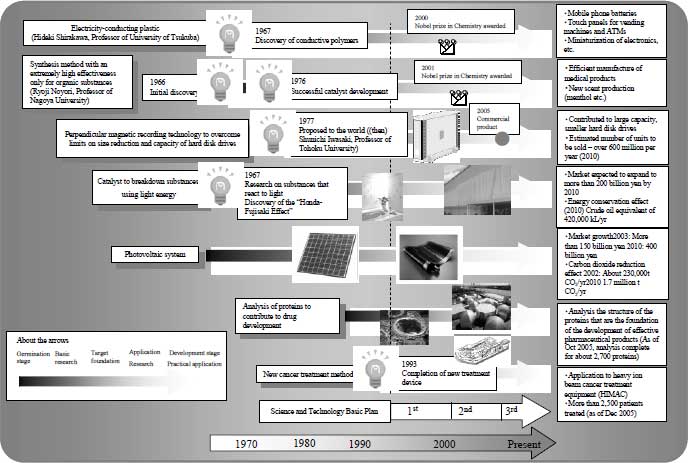To make economic and social values by science and technology, it takes long time R&D with twists and turns from a small seed of basic research at a university. Even when a product is made or when it is put into practical use, it is not always accepted in the market. Let's see examples that were developed into industrialization under such difficult circumstances, and that Japanese technological capacity was shown to the world.
Perpendicular magnetic recording technology is not only used today for computer hard disks, but also is the technology to achieve miniaturization and large capacities of hard disk drives that are used for portable music players and for recording TV programs. It is expected to contribute further to the miniaturization and higher performance of many devices. The Photocatalyst is a catalyst to break down substances using light energy, and its self-cleaning function has already been used for tiles and glasses for construction and side-view mirrors of automobiles. It is expected that its market will expand in the future. Because environmental issues are important today, the photovoltaic system is counted on very much as semi-permanent and clean energy with no waste generation. Japan occupies slightly less than 50% of the entire production in the world and is the world's largest producing country. Including these, typical examples are shown in the figure below.
These examples verify that even a small seed at the beginning can create big economic and social value if the possibility of the technical seed is believed and R&D is continued. You could say that it shows Japan's possibility to develop based on its science and technology.
Examples of long-term growth of small buds flowering into innovative industrialization

Source:
Created by the Ministry of Education Culture, Sports, Science
and Technology from Cabinet Office Science and Technology Policy materials
Contacts
Research and Coordination Division, Science and Technology Policy Bureau
(Research and Coordination Division, Science and Technology Policy Bureau)




